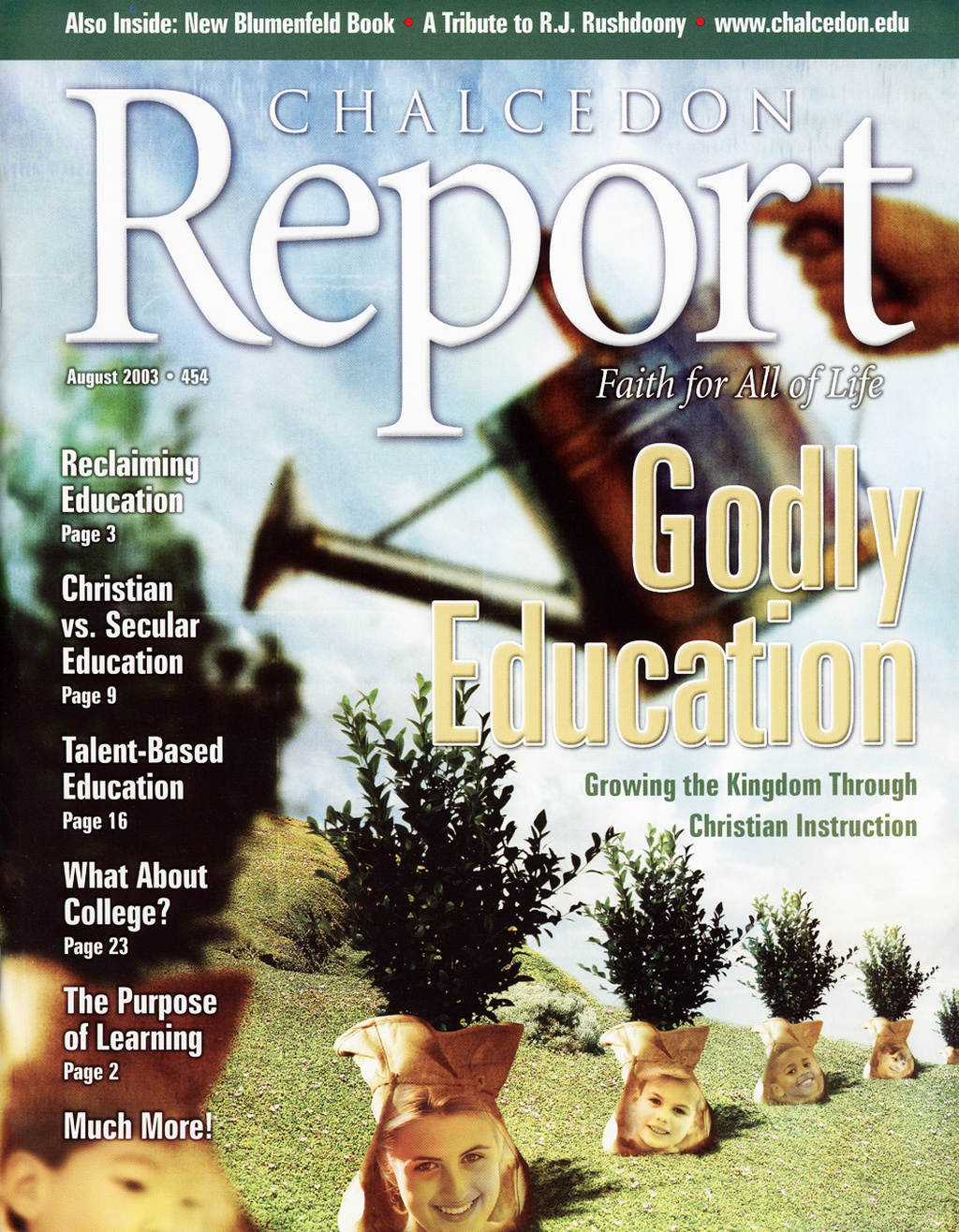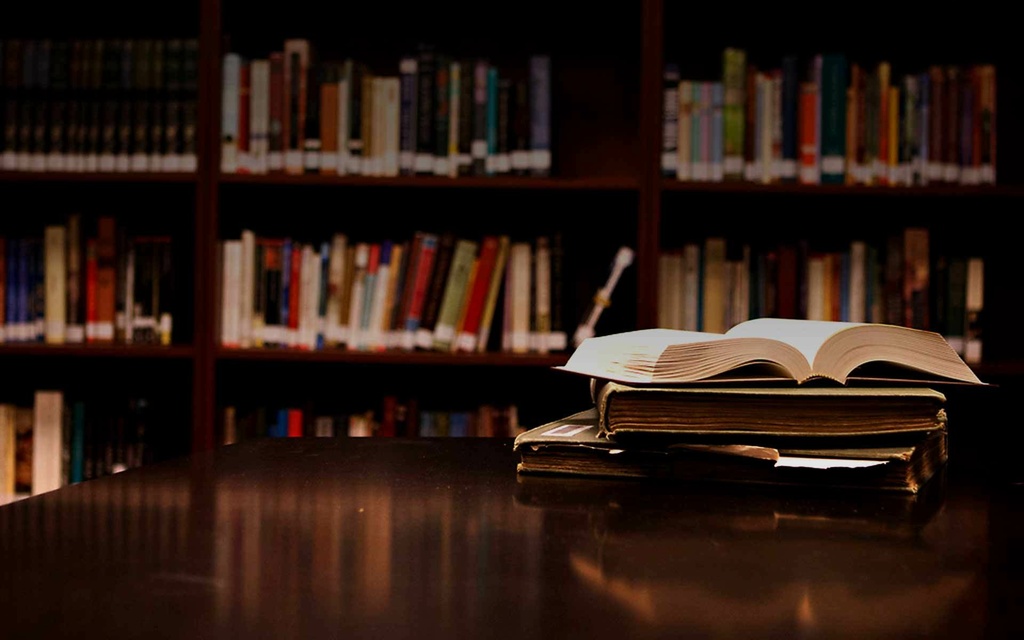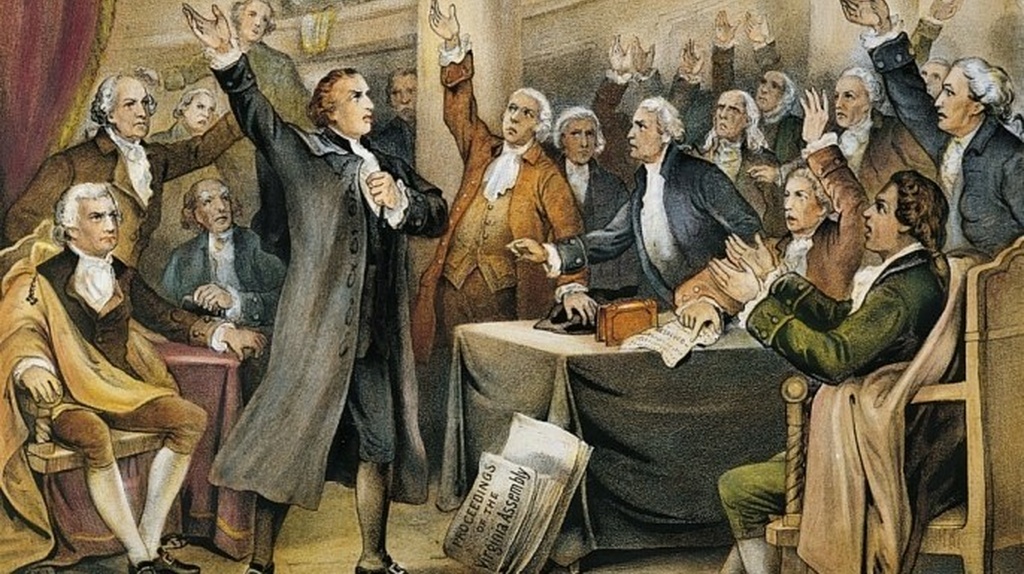
Magazine Issue
Godly Education: Growing the Kingdom Through Christian Instruction
Christian education needs to raise up a generation that seeks freedom in God, not from God, one that sees the necessity of personal dependence on Him and the interdependence of men under His law.
August 2003 Articles:

The Purpose of Learning

- R. J. Rushdoony
Reclaiming Education

- Mark R. Rushdoony
A Tribute To Dr. R. J. Rushdoony For His Contributions To Christian Education
- William D. (Bill) Graves
The Obscure Courthouse Gladiator
- J. Shelby Sharpe
America's Most Important Battleground: Christian vs. Secular Education
- Tom Rose
Government Schools: Producing What We Pay For!
- John Stoos
The Christian One-room Schoolhouse: A Superior Alternative to Government Schools
- Bruce N. Shortt
Talent-Based Education: A Christian Perspective
- Ian Hodge
A Biblical Approach to Student Evaluation and Grading
- Ron Kirk
"What Does It Mean to You?" History as a Tool of Covenant Evangelism
- Roger Schultz
What About College?
- Caleb Dahl
- , Doug Dahl
If You Only Had a Few Years
- Greg Uttinger
Rewards of Homeschooling
- Sandra A. Lovelace

Patrick Henry: Homeschooled Christian Patriot
- Rick Williams
The Islamization of Europe
- Samuel L. Blumenfeld